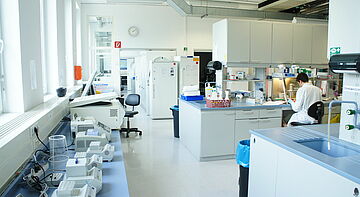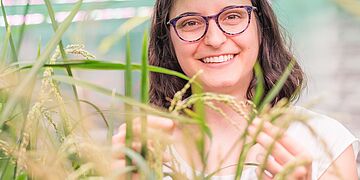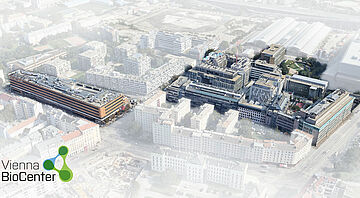Featuring prominently in the Web of Science “Highly Cited Papers,” the work of these researchers has made a significant mark within their respective disciplines. The nine Highly Cited Researchers at Vienna BioCenter represent an impressive 21% of Austria's highly cited researchers for the year, underscoring VBC's commitment to excellence in scientific research.
This recognition goes beyond mere citation metrics, highlighting the substantial influence and transformative impact these researchers have had in their areas of expertise. Their pioneering ideas, groundbreaking discoveries, and innovative methods have not only garnered extensive citations but also catalyzed further research and discussions in the global scientific arena.
From CeMESS
From the Division of Microbial Ecology (DOME), Holger Daims and Michael Wagner have been instrumental in enhancing our understanding of nitrifying microorganisms. Their groundbreaking identification of Commamox (microbes that can oxidize ammonia to nitrate) has revolutionized the field of nitrification. Daims is renowned for his development of in situ labelling and imaging techniques, while Wagner has made significant strides in single-cell technologies and leads the ambitious "Microbiomes Drive Planetary Health" Cluster for Excellence, demonstrating his commitment to pioneering new frontiers in microbiology.
In the Division for Terrestrial Ecosystem Research (TER), Andreas Richter, Director of CeMESS, has significantly advanced our knowledge of microbial dynamics in terrestrial ecosystems, particularly in arctic permafrost. His insights into microbial carbon and nitrogen use efficiency have been groundbreaking. Wolfgang Wanek, also of TER, has made notable contributions to our understanding of plant-soil-microbe interactions, especially in their role in ecosystem processes, through his innovative work with stable isotope methods.
From the Division for Computational Systems Biology (CUBE), Thomas Rattei has made a name for himself in various domains, including bioinformatics, genome analysis, and systems biology. His leadership roles in genome sequencing consortia and his team's contributions to critical computational biology resources reflect his extensive impact in these fields.
From IMBA
Jürgen Knoblich, Scientific Director at IMBA, has been named Highly Cited Researcher for the 4th year in a row. Knoblich is interested in the molecular mechanisms that enable development of the human brain. Knoblich and his team have developed cerebral organoids, 3D cultures derived from pluripotent stem cells, that recapitulate cell fate specification and morphogenesis in the human brain. Cerebral organoids allow the researchers to investigate the molecular events leading to brain diseases like Epilepsy or Autism.
Bon-Kyoung Koo, group leader at IMBA until June 2023 and now director at the Center for Genome Engineering, Institute of Basic Science in South Korea, was also named as Highly Cited Researcher. Koo is interested in the underlying mechanisms of adult tissue homeostasis and the early steps of tumorigenesis. Using a combination of genetics tools, in vivo and in vitro models, such as intestinal organoids, and imaging techniques, Koo and his team aim to understand how the homeostatic tissue regeneration is regulated and how tumorigenic mutations affect the balance of adult stem cells.
From Max Perutz Labs
Arndt von Haeseler is group leader at the Max Perutz Labs. Von Haeseler and his team are developing mathematical models and bioinformatics tools to analyze big data in molecular biology, aiming for applicable software products for a wide user community. A special research interest lies in molecular evolution and the understanding of evolutionary forces. With their expertise in developing phylogenetic methods and complex models, and an application to large and complex datasets, Arndt von Haeseler and his team provide a comprehensive picture about evolutionary history.
Marco Hein established his group at the Max Perutz Labs in 2022. His lab is investigating virus-host systems to understand the fundamental principles of the organization of life at the molecular level. This will help developing drugs to combat viral replication and preventing of an overactive immune response. Hein’s expertise lies in designing systems-level experiments, which yield systems-level insights and is going beyond what one can see by studying one gene or protein at a time.




